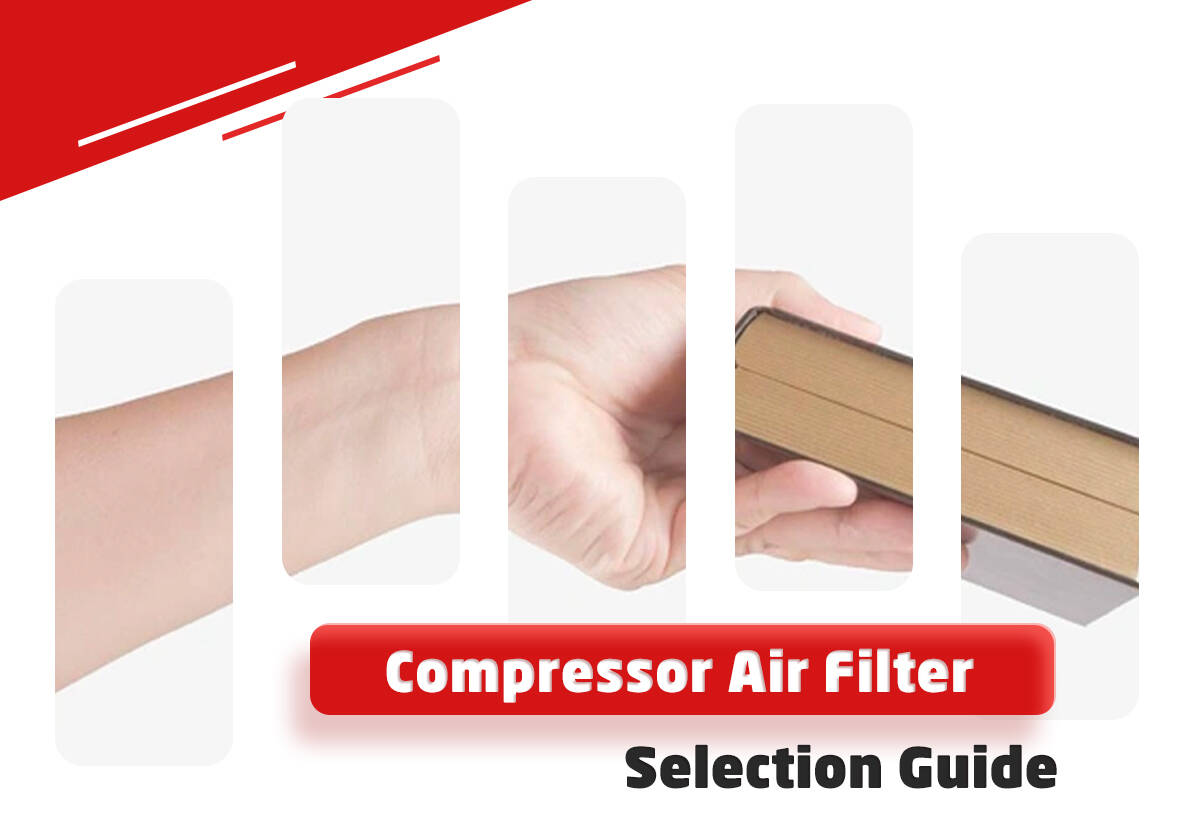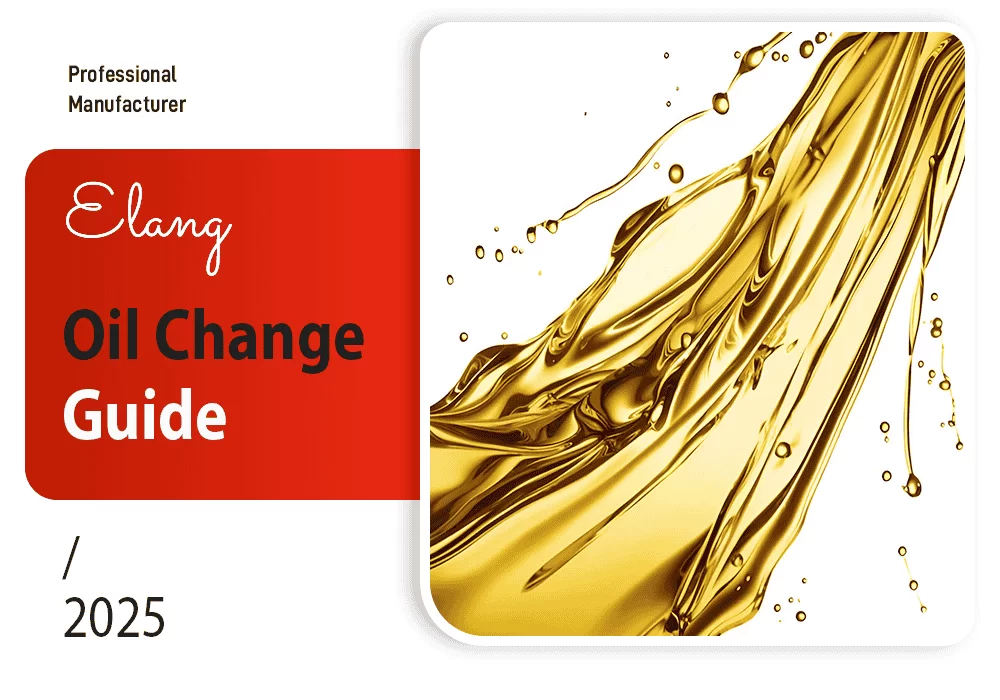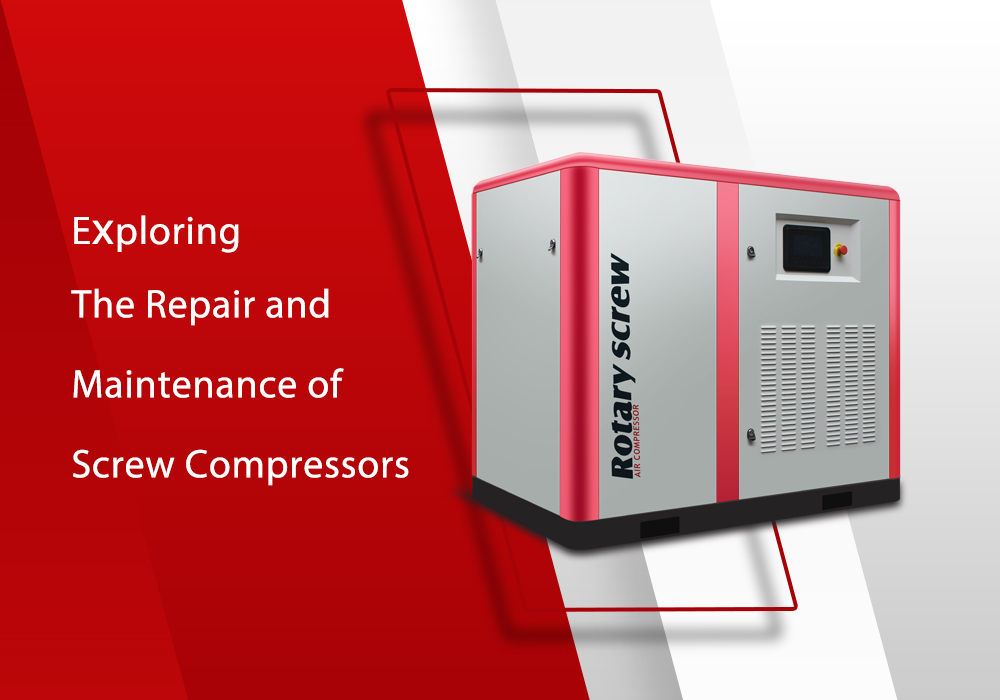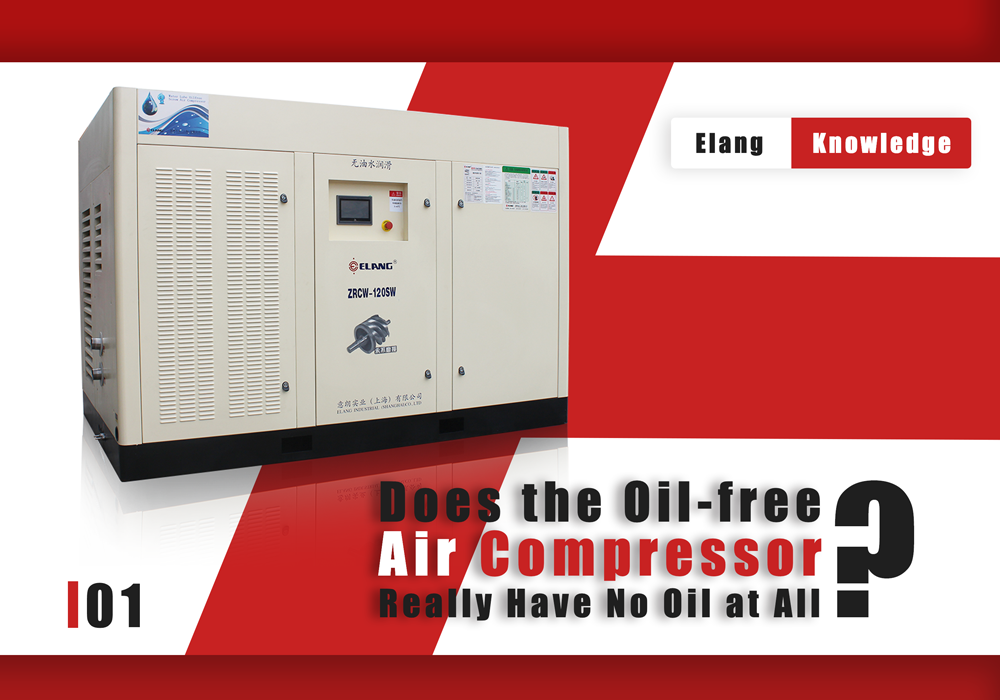
Oil-injected compressors have a higher oil content, while oil-free compressors have extremely low oil content, typically around 0.01ppm, making them truly oil-free.
In air compressors, the terms “oil-free” and “oil-injected” generally refer to the amount of oil content in the discharged air. Oil-injected compressors have a higher oil content, while oil-free compressors have extremely low oil content, typically around 0.01ppm, making them truly oil-free. There is also a third type known as “full oil-free” compressors, which use resin materials for lubrication and produce air without any oil content.
Advantages of Oil-free Air Compressors
1. Completely oil-free gas
Oil-free compressors produce air without any oil content, protecting downstream equipment such as water removal devices and reducing the need for additional maintenance expenses.
2. Lower operating costs
Compared to oil-injected compressors, oil-free compressors eliminate the need for regular lubricant and oil filter replacements, resulting in cost savings on lubricant usage and efficient oil filter replacements. For example, a high-quality 7.5KW oil-injected compressor consumes a minimum of 5 kilograms of lubricating oil monthly, leading to an annual cost of 60 kilograms of lubricating oil, along with the expense of using efficient oil filters that need frequent replacement.
3. Unique oil-free characteristics
Due to the high viscosity of lubricating oil, current oil removal equipment cannot completely eliminate it, making the oil-free characteristic of fully oil-free compressors irreplaceable.
4. Energy efficiency
Using oil-free compressors reduces pressure losses caused by oil removal devices, leading to lower motor loads and achieving energy efficiency. For instance, good-quality third-stage oil removal equipment can cause pressure losses of 1 to 1.2 kilograms, and a 7.5KW air compressor incurs an additional 600W power loss for every 1 kilogram of pressure increase, resulting in 6 kWh of electricity consumption per day (based on 10 hours of operation), which becomes a long-term hidden cost.
5. Improved air quality
The materials used in oil-free compressors are oil-resistant, and no lubricating oil is needed during operation, significantly enhancing the quality of the discharged air and ensuring the safety of downstream equipment by avoiding corrosion.
6. Environmental benefits
Oil-free air technology reduces costs associated with expensive filters and handling oil condensate, minimizing pressure drops in filters and resulting energy losses. Furthermore, oil-free compressors meet international standards, reducing leaks and energy wastage, significantly improving the availability and reliability of oil-free compression equipment.
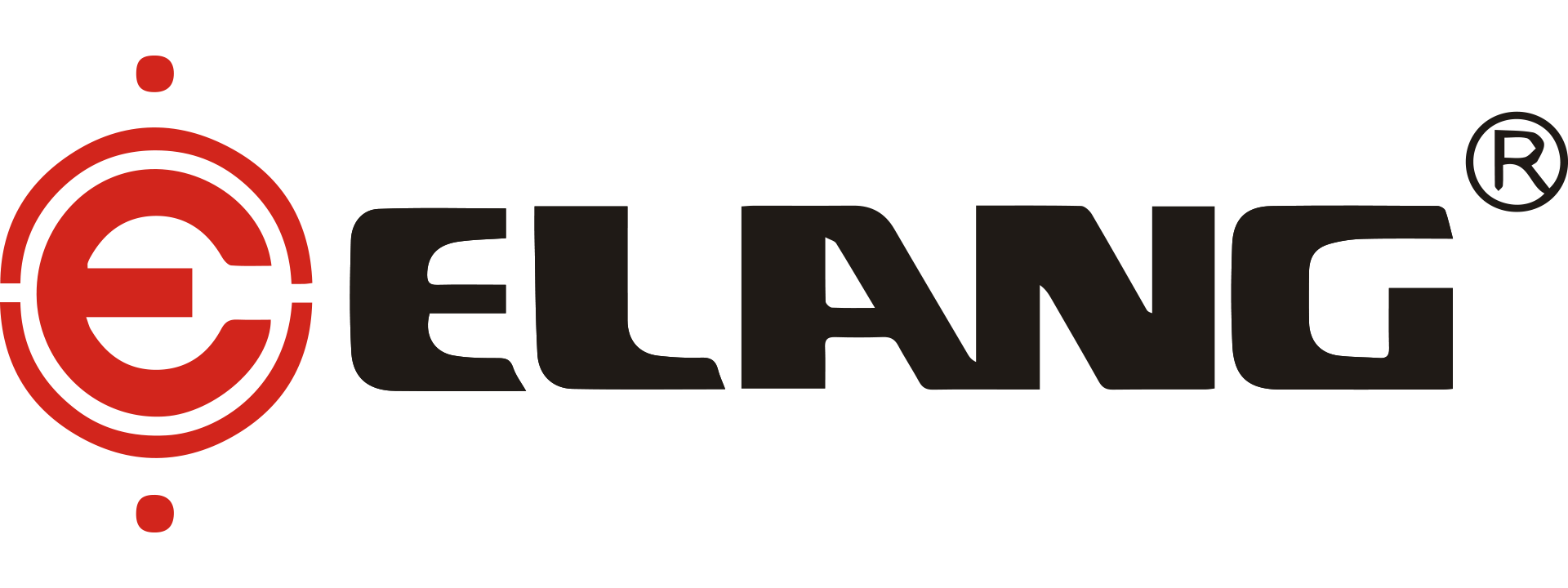








-66x66.png)

